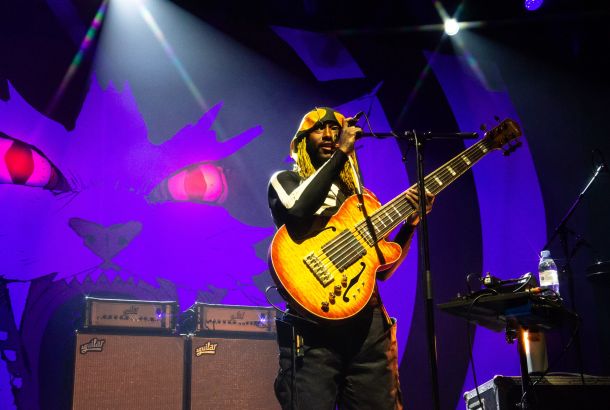Interview: Jaguar Skills
Renowned for his versatile cut-and-paste mixing style; Jaguar Skills is a seriously talented DJ.
In my opinion there are two things this DJ does that make him really special. The first is his intense speed-mixing; often moving from track to track in five seconds or less. The second is the breadth & depth of his samples. He finds these classic House/Funk/ Soul/Rap/Hip Hop samples and will then mix old with new, often blending genres.
The story of his style begins in the 80s: he explains that he “was a hip hop DJ originally,” and credits the American artists DJ Clark Kent & DJ Kid Kapri as strong influences on his early sound. “They were the first guys I ever saw to play four beats of a tune, flip to another four and play another record real quick”. He has respect for what they did at that time: “They smashed it in New York.”
He explains that another key influence was a DJ Spinbad mixtape—someone he describes as “a straight hip-hop DJ and real legit.” At the time he had a very particular taste in hip-hop, but in this mixtape DJ Spinbad starts “scratching in 80s pop records.” He was shocked and said it was “really amazing hearing this real shit record.” But it was a game-changer and he says “I took that concept and flipped it to the electronic.”
Jaguar Skills was also raised in a house with thousands of records on vinyl. His dad was a DJ, who “used to sell records out of the house.” He later worked for a record company and went on to run his own label. Music is a massive part of his life: “For me man, music is like food. It is like [the way] I like sushi, I love a fillet of beef, Heston Blumenthal. McDonalds. KFC. Don’t eat it all the time but I like it.” He goes on to clarify that “it’s all just music. It’s all just food” and says this personal perspective was a “revolution/revelatory thing.”
He is not just fast at playing music; but also has speed-listening techniques to quickly judge if a song is decent saying “you know, I give a record 40 seconds.” I ask him specifically about how he selects dance records, given that there are so many throwaway tracks nowadays. He explains that “most dance records are sequenced and arranged,” with the breakdown a quarter of the way through and the drop halfway through and describes the process: “Put a beat on, normal, skip through, drop. Ooh that’s interesting. Let me listen to the whole thing.”
Listen to ‘The Piano Loop Mix’ or ‘30 Years of Hip Hop in 30 minutes’ on his SoundCloud page and you can feel just how well these tactics can turn out for him. I then asked about how modern electronics and the internet have impacted on the way his music is made. He says it’s “much easier to make records” and that “10 years ago you would have to buy tapes, have a studio, had to have all this shit, had to have a bit of money, really have to hope what you would make was good and then you would have to get signed!”
Comparing the traditional process to the modern day music business he remarks “the whole process seems nightmarish” by comparison, however at the time artists were “paid a lot more.” Nowadays “the money you make from selling records is minimal” but “artists now get paid more for live gigs” and he loves the ability to just “make a tune on your laptop.” The consequence of this is that “certain music has become more direct, more throwaway, more simple” and he laments that there is less of a place for “songs that take a while for people to get into.”
In terms of where he finds music online he visits: www.beatport.com, www.djcity.co.uk & www.breakbeat.co.uk. He loves listening to new music, to “see how a crowd reacts to a song” and often checks venue listings to see which other DJs are playing where.
I then asked about whether he feels the mask detracts from his connection with a live crowd. He has thought about this a lot before and says that “people react to your face in a certain way. You get different highs off people’s faces” but that doing it masked frees him to “get more interaction with the crowd” because he “uses the body” more as a “communication tool” and that from a “semi-deep” perspective the mask is powerful.
It is powerful because “you lose your face, the thing that people are used to” and that it is “quite interesting to manipulate that”. He openly admits that would hate to be conventionally famous, that he is “quite private in a way.” Finally, Jaguar Skills produces a quote that best describes why he wears a mask: “when a man puts on a mask he reveals his true face.”
Jaguar Skills plays Sankeys this Saturday 15th alongside Beardyman. Tickets are on sale here.







